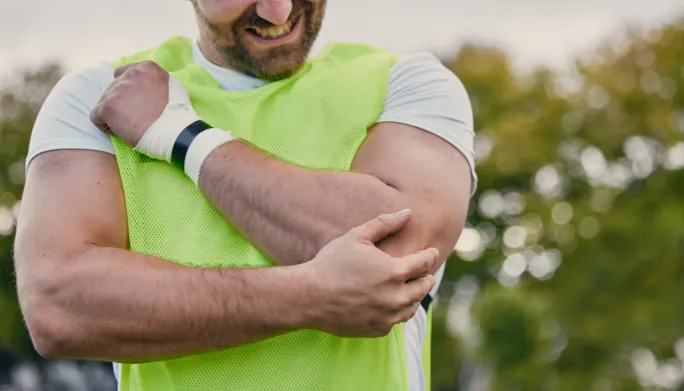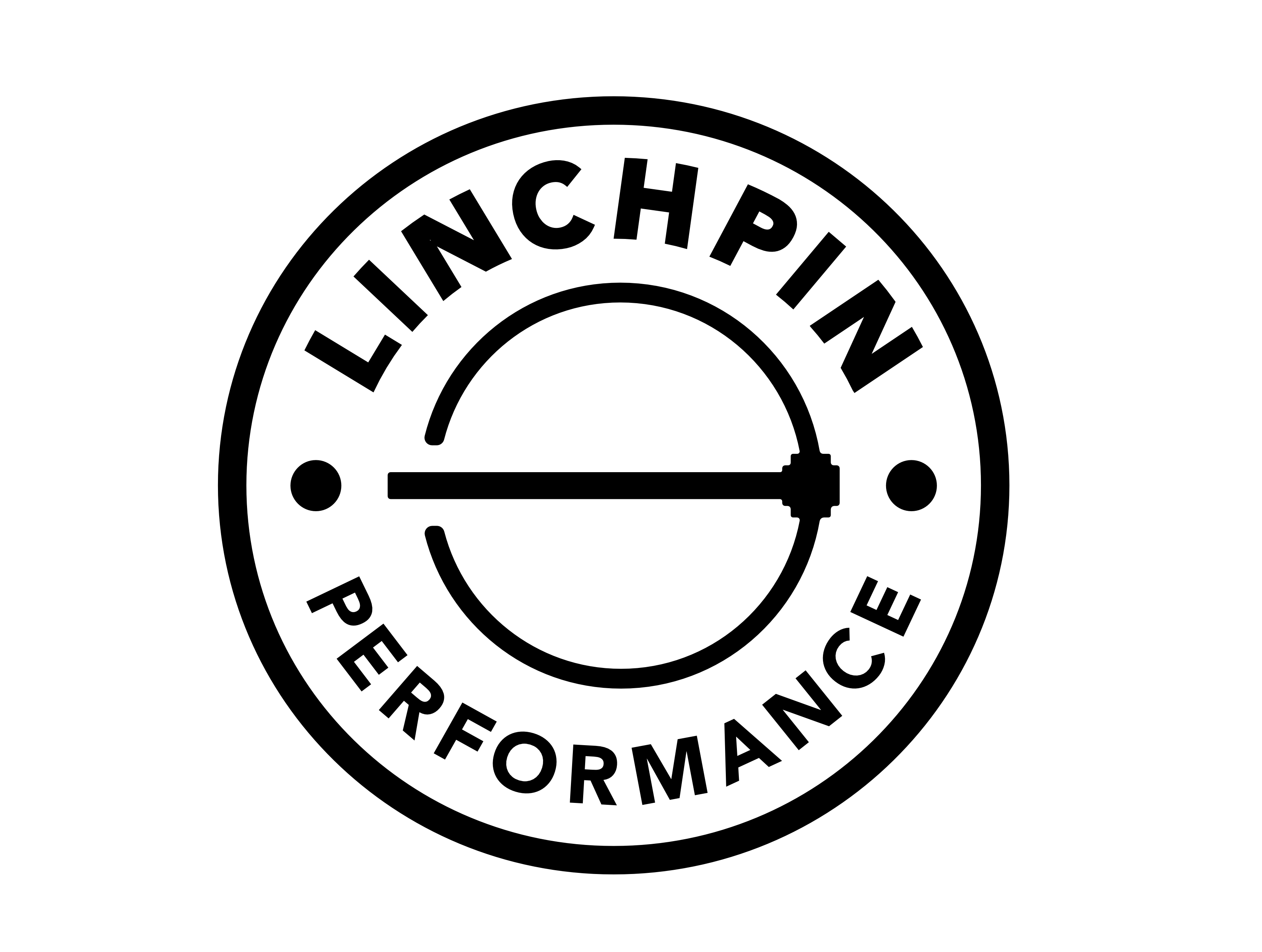Linchpin Performance
Tendinitis in Lyndon
Tendinitis Treatment and Rehabilitation in Lyndon
Welcome to Linchpin Performance, your top destination for effective Tendinitis treatment in Lyndon. If you’re an athlete, a former athlete, or simply someone leading an active lifestyle who has been impacted by painful inflamed tendons, our physical therapy team can help get you back to full mobility.

Understanding Tendinitis in Lyndon
Tendinitis refers to swelling and irritation of the tendons, the tough bands of fibrous tissue that connect muscles to bones. It is most often caused by repetitive overuse or straining of the tendon over time. Sports like tennis, swimming, running, and basketball requiring repetitive motions are common culprits for tendon inflammation. It can also stem from sudden injury, poor training practices, muscular imbalances, or anatomical issues putting increased pressure on tendons. When tendons become inflamed, the tissues become less resilient. This results in localized pain, tenderness, occasional swelling, and reduced joint mobility. While the severity varies case-by-case, frequent or persistent Tendinitis flareups can limit function, impact performance, and reduce one’s overall quality of life if left untreated.
Common Signs and Symptoms
- Pain, tenderness, or burning sensation over the affected tendon
- Stiffness, difficulty moving the joint, reduced range of motion
- Occasional mild swelling or thickening of the tendon
- Crepitus or crackling sensation when moving the joint
- Weakness in muscles attached to the tendon
Why Prompt Treatment Matters
While getting older naturally increases Tendinitis risk due to tissue changes, it can affect anyone leading an active lifestyle at almost any age. Ignoring early symptoms often leads to recurrent, harder-to-treat flare-ups. Chronic cases can become debilitating over time without proper intervention. Seeking quick treatment maximizes positive outcomes by addressing inflamed tissues before long-term scar tissue accumulates. Early rehabilitation strengthens tendons preventing future rupture or tear while restoring optimal mobility. With sound treatment strategies, people often achieve a full recovery and return to activities pain-free in 4-6 weeks if not sooner.
Key Treatment Approaches
1. Pain Management and Inflammation Reduction
- Heat/ice therapy
- Manual therapy and massage
- Ultrasound
- TENS
- Temporarily bracing or splinting the joint
By calming inflammation and easing discomfort in the early rehabilitation stages, you can start rebuilding flexibility, strength, and function faster.
2. Improving Flexibility and Range of Motion
- Gentle range of motion exercises
- Progressive stretching
- Muscle release techniques
- Activity modification guidelines
With improved flexibility and mobility at the affected joint, ordinary tasks and activities become less painful. Restoring adequate joint range of motion better distributes forces minimizing risk of future Tendinitis flare-ups.
3. Strengthening and Stabilization
- Eccentric exercises using weights/resistance bands
- Isometric exercises
- Functional weight-bearing exercises
- Sport/activity-specific drills for athletes
Strategically strengthening and balancing the muscles supporting compromised tendons, makes them more resilient to handle stresses and withstand loads. With enhanced stability, flexibility, endurance, and movement control, you can better prevent re-injury.
4. Education for Self-Management
To prevent future complications beyond therapy completion, our staff provides personalized education on:
- Posture modification and joint protection
- Managing activity levels
- Home exercise program for maintenance
- Signs to avoid aggravating injury
- When to seek therapy again
With greater awareness of your body, movement limitations, and tendon health needs through education, you can minimize aggravation and avoid recurring problems or complications. Monitoring warning signs enables you to intervene promptly before extensive damage occurs.
5. Regaining Confidence and Performance
Our therapists utilize advanced evaluation techniques to accurately pinpoint your unique Tendinitis contributing factors. By developing customized treatment plans addressing your individual impairment needs from start to finish, we progress you systematically through the healing stages for your personal goals and activity interests.
Whether simply easing discomfort for daily tasks or restoring strength and function for athletic pursuits, our hands-on strategies aim to get you moving confidently again without pain or mobility limitations holding you back.
Frequently Asked Questions
What is the best way to treat Tendinitis?
An integrated rehabilitation approach works best by calming pain and inflammation early, restoring flexibility and strength progressively, and self-managing with prevention strategies long-term. Typically incorporating rest periods, bracing when needed, manual therapy, modalities, stretching, eccentric exercises and technique adjustments provides optimal recovery.
Does tendinitis ever go away?
With proper treatment and long-term self-management, symptoms generally resolve fully allowing a complete return to activities. But ignoring early warning signs means it can easily return, becoming chronic without consistent care. Maintaining tendon health is imperative.
How long does it take tendons to heal?
Uncomplicated cases of mild Tendinitis often resolve within 2 to 4 weeks with conservative treatment. More significant or chronic cases can take 6 to 12 weeks for complete tissue repair and remodeling. Factors like injury severity, location, personal health, and timely intervention influence outcomes.
Can you work with Tendinitis?
You may be able to continue modified, light-duty work not significantly aggravating inflammation depending on location/severity. However work duties requiring using affected joints extensively could delay healing if adjustments are not made. Consulting a physical therapist helps create an appropriate plan.
Meet Your Tendinitis Rehab Team
Our talented physical therapy group has years of experience restoring pain-free mobility to clients just like you. Rely on their expertise for your Tendinitis recovery every step of the way.
Dr. David Dahl, PT, DPT
With years practicing outpatient orthopedics, Dr. David Dahl leads our clinical team. Skilled at resolving complex tendon overuse injuries, patients benefit from her manual therapy specialization and individualized exercise programs promoting full rehabilitation.
Start Healing Today
If you’re ready to alleviate frustrating Tendinitis discomfort holding you back from important work or recreational activities, call Linchpin Performance in Lyndon now to get started. Our scheduling coordinators assist with insurance benefits verifications and getting appointments booked conveniently around your lifestyle needs.
About The Author
Dr. David Dahl ignites movement in patients facing Physical Therapy. Their years of experience and dedication unlocks physical potential for a better quality of life. At Linchpin Performance in Lyndon, Dr. David Dahl wields a patient-centered approach, wielding cutting-edge techniques and bespoke care plans to conquer a vast array of physical challenges.

